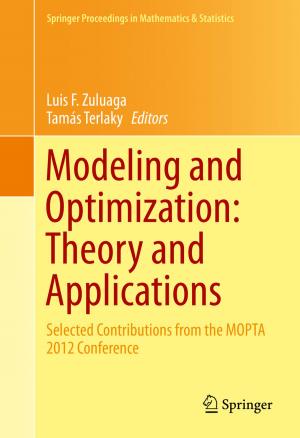The Unity of Science and Economics
A New Foundation of Economic Theory
Nonfiction, Science & Nature, Science, Other Sciences, System Theory, Business & Finance, Economics, Social & Cultural Studies, Social Science| Author: | Jing Chen | ISBN: | 9781493934669 |
| Publisher: | Springer New York | Publication: | November 6, 2015 |
| Imprint: | Springer | Language: | English |
| Author: | Jing Chen |
| ISBN: | 9781493934669 |
| Publisher: | Springer New York |
| Publication: | November 6, 2015 |
| Imprint: | Springer |
| Language: | English |
This book presents a new economic theory developed from physical and biological principles. It explains how technology, social systems and economic values are intimately related to resources. Many people have recognized that mainstream (neoclassical) economic theories are not consistent with physical laws and often not consistent with empirical patterns, but most feel that economic activities are too complex to be described by a simple and coherent mathematical theory. While social systems are indeed complex, all life systems, including social systems, satisfy two principles. First, all systems need to extract resources from the external environment to compensate for their consumption. Second, for a system to be viable, the amount of resource extraction has to be no less than the level of consumption. From these two principles, we derive a quantitative theory of major factors in economic activities, such as fixed cost, variable cost, discount rate, uncertainty and duration. The mathematical theory enables us to systematically measure the effectiveness of different policies and institutional structures at varying levels of resource abundance and cost.
The theory presented in this book shows that there do not exist universally optimal policies or institutional structures. Instead, the impacts of different policies or social structures have to be measured within the context of existing levels of resource abundance. As the physical costs of extracting resources rise steadily, many policy assumptions adopted in mainstream economic theories, and workable in times of cheap and abundant energy supplies and other resources, need to be reconsidered. In this rapidly changing world, the theory presented here provides a solid foundation for examining the long-term impacts of today's policy decisions.
This book presents a new economic theory developed from physical and biological principles. It explains how technology, social systems and economic values are intimately related to resources. Many people have recognized that mainstream (neoclassical) economic theories are not consistent with physical laws and often not consistent with empirical patterns, but most feel that economic activities are too complex to be described by a simple and coherent mathematical theory. While social systems are indeed complex, all life systems, including social systems, satisfy two principles. First, all systems need to extract resources from the external environment to compensate for their consumption. Second, for a system to be viable, the amount of resource extraction has to be no less than the level of consumption. From these two principles, we derive a quantitative theory of major factors in economic activities, such as fixed cost, variable cost, discount rate, uncertainty and duration. The mathematical theory enables us to systematically measure the effectiveness of different policies and institutional structures at varying levels of resource abundance and cost.
The theory presented in this book shows that there do not exist universally optimal policies or institutional structures. Instead, the impacts of different policies or social structures have to be measured within the context of existing levels of resource abundance. As the physical costs of extracting resources rise steadily, many policy assumptions adopted in mainstream economic theories, and workable in times of cheap and abundant energy supplies and other resources, need to be reconsidered. In this rapidly changing world, the theory presented here provides a solid foundation for examining the long-term impacts of today's policy decisions.















